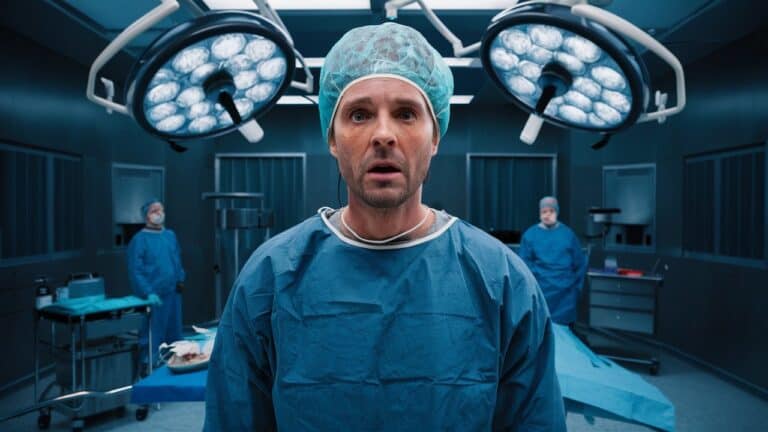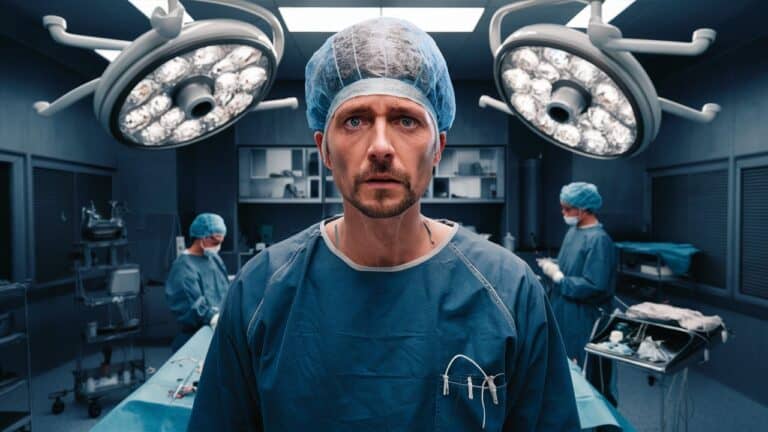Have you ever experienced that horrible, sickening sensation of fear when the sound of crashing metal reverberates? A sudden, unexpected auto accident, and bam! Your world is spinning. You’re in shock, heart pounding like a drum. Managing Attorney Jason Plotkin has been in multiple auto accidents and understands what you are going through and prepared this guide on what to do after an auto accident.
The first few moments after an auto accident are crucial but often chaotic. Panic sets in; questions bombard your mind: “Am I hurt?” “Is my car totaled?” What’s next?
Your safety comes first, yes, but what follows isn’t any less important – dealing with law enforcement, insurance companies… it’s overwhelming.
This guide is your lifeline in turbulent times, showing you the steps to take after a car crash. We’ll help you with reaching out to emergency services, collecting crucial info at the scene for insurance and legal reasons –
Table Of Contents:
- Jason Plotkin, Esq. CEO & Managing Attorney
- Gathering Information at the Accident Scene
- Contacting the Relevant Parties
- Reporting the Accident to Authorities
- Documenting the Accident and Damage
- Dealing with Insurance Companies
- Seeking Medical Treatment and Assistance
- Handling Rental Cars and Alternative Transportation
- Understanding Legal and Financial Implications
- Additional Tips and Considerations
- Conclusion
 Jason Plotkin, Esq. CEO & Managing Attorney
Jason Plotkin, Esq. CEO & Managing Attorney
Immediate Steps to Take After an Auto Accident
Picture this: you’ve just been involved in a car accident. After the accident, your body is flooded with stress hormones and it can be difficult to know what steps to take. It’s easy to feel overwhelmed in such situations but having some know-how can help make the situation less stressful.
Prioritizing Safety at the Auto Accident Scene
The primary concern should be ensuring safety. Make safety a priority. If possible, activate your hazard lights and move out of traffic flow into a safe location. State Farm’s mobile app has excellent resources on how best to handle these immediate post-accident steps.
Contacting Emergency Services
You should also contact emergency services right away – even if it seems like no one was seriously injured or damage appears minimal. The AAA roadside assistance team, for example, offers support 24/7 for all types of accidents. In any case, don’t leave before police arrive; they will assess the scene and generate an accident report number that will be essential when dealing with insurance claims later on.
Gathering Information at the Accident Scene
After ensuring everyone’s safety and contacting emergency services, it’s time to gather crucial information. The adrenaline rush can make this step overwhelming, but don’t fret; here’s a handy guide to help you.
The first set of details involves those directly related to the other driver(s). Make sure you get their full names and phone numbers. If possible, also jot down their license plate number as well as any pertinent features about their vehicle like color or model year.
Driver’s license numbers are essential too. And don’t forget insurance cards; they contain vital data such as policy numbers and contact info for claims departments and the insurance company’s involved.
Vehicle Inspection: Skid Marks & Damage Assessment
Vehicles involved in car accidents often leave skid marks on roads – these can be useful when determining fault later on. Additionally, assess your own car’s damage. This includes minor scratches or major dents that could affect its drivability post-accident.
Pedestrian Witness Statements & Contact Info
If there were witnesses present during the car accident – note down what they saw along with their names and phone numbers if willing to provide them. These statements may prove valuable should legal action ensue later on. Witnesses may also testify to accident injuries that they observed and accident-related documents
Filing Police Reports & Retrieving Report Numbers
Contacting law enforcement is an important part of auto accidents aftermaths – especially for severe incidents involving injuries or extensive property damage. Once officers arrive at the scene, ask them for the police report number. This will be a crucial piece of information for your insurance claims process.
After an auto accident, ensure everyone’s safety and call emergency services. Collect essential information from the other driver(s), inspect your vehicle for damage, and note any skid marks. If witnesses are present, get their accounts and contact info. File a police report if necessary and retrieve the report number for future insurance claims.
Contacting the Relevant Parties
After an auto accident, it’s crucial to let your insurance company know about the incident as soon as possible. You’ll need a few details at hand: your policy number and claim number adjuster handling, for instance. Most insurances companies will provide comprehensive instructions about starting an insurance claim online. DO NOT give a recorded statement with speaking with an experience car wreck attorney.
Reporting the Accident to Authorities
Notifying law enforcement of an auto accident is essential for your safety and the protection of others, as well as to create a legal record that may be necessary when handling insurance companies or potential litigation.
Remember: accuracy matters. You may want advice from experienced personal injury lawyers like Pinder Plotkin LLC who have extensive knowledge about dealing with such scenarios.
Alerting law enforcement after an auto accident is crucial for your safety and to create a formal record of the event. Stay calm, cooperate with officers, and note down important details like badge numbers for future reference. Remember that accuracy in reporting matters because it can impact legal or insurance outcomes.
Documenting the Accident and Damage
Getting your ducks in a row after an auto accident is crucial, and that starts with documenting everything. And we mean everything.
The Importance of Photographic Evidence
Have you ever heard the expression “An image speaks volumes”? In this case, it might also be worth thousands of dollars when dealing with insurance claims.
Pictures serve as undeniable proof of property damage and any injuries sustained during the car accident. From dents to shattered glass – no detail is too small for your camera lens. Remember: what may seem like minor vehicle damage could signal more significant issues under the hood.
In addition to snapping shots from every angle possible, consider taking videos at the scene. This can help give context to static images and capture things photos alone might miss.
This visual evidence will prove invaluable if there’s any dispute about what happened or how severe it was GEICO Glass Damage Report. Plus, photos make life easier for your insurance adjuster handling your claim – helping you get back on track faster.
Total Loss Versus Repairable Vehicle Damage?
“But my car still runs fine.”
Sure, but does ‘fine’ translate into ‘safe’? Documenting all visible signs of damage aids in determining whether repairs are feasible or if you’re looking at total loss situation. Either way – knowing beats guessing every time.
Dealing with Insurance Companies
Experiencing a car accident can be highly demanding, yet managing insurance companies may be an even more troublesome task. Here are some strategies to assist you in the insurance claim process.
The first step is to inform your insurance agent about the incident. The agent can your vehicle insurance and insurance coverage.
You might wonder: “Will this claim affect my policy?” It depends on factors like who’s at fault, type of coverage, and whether it’s related to commercial auto or workers’ compensation.
Navigating The Claims Process
Contacting your insurer immediately after an accident lets them start their work sooner which could speed up the entire process. Be prepared for a lot of questions; they’ll want every detail of what happened. But remember – always stick to facts without admitting guilt or laying blame until investigations are completed.
Your privacy matters too. Never give out personal information like driver’s license numbers unless necessary as per your provider’s privacy policy.
Talking To An Adjuster
An adjuster from either yours or another party’s insurance company will contact you regarding details about the damage incurred during accidents involving vehicles insured under them – such as cars or trucks associated with workers’ compensation claims. Be cautious while talking and ensure all communications are documented well because these may later serve as important evidence if disputes arise.
In conclusion, navigating through insurance issues post-accident isn’t easy but being proactive helps immensely in making sure that things proceed smoothly.
Seeking Medical Treatment and Assistance
The aftermath of an auto accident can be chaotic, but prioritizing your health is crucial. Even a minor impact could cause injuries that aren’t immediately noticeable.
Visit a healthcare provider immediately following the accident to ensure you get any necessary medical treatment promptly and to document potential injuries that may help with insurance claims. They’ll check for any underlying issues caused by the trauma. This also establishes documentation of potential injuries which might help in insurance claims later on.
Remember to provide all relevant information about your health insurance to the hospital or clinic staff during registration so they know how to bill appropriately for their services.
If you don’t have personal health coverage, consider reaching out for medical assistance. Many hospitals offer patient advocate programs designed to guide patients through complex billing situations or find alternative means of payment if needed.
Navigating Health Insurance After an Accident
Your car insurance plan may feature Personal Injury Protection (PIP), which takes care of medical bills regardless of who caused the accident. It’s essential to notify them swiftly after seeking treatment so they’re aware and can start processing your claim right away.This makes it easier when dealing with both vehicle repairs and bodily injury claims under one umbrella instead of juggling multiple providers. Most insurance companies like Allstate, State Farm, Geico, USAA, Liberty Mutual, Progressive, Erie and NJM offer easy access online 24/7 making it simpler than ever before to file an insurance claim.
Handling Rental Cars and Alternative Transportation
If your vehicle is undriveable after an accident, don’t worry. You’ve got options to keep you moving while your car gets fixed.
Many insurance companies will provide reimbursement for rental car costs if you have comprehensive coverage; it’s important to check with them ahead of time to avoid any surprises. It’s essential to get this clarified with them early on, so there are no surprises later.
Using Rideshare Services as Temporary Transport
If renting isn’t ideal for you, consider rideshare services such as Uber or Lyft. They offer convenience without long-term commitment which might be just what you need during this stressful time.
Tapping into Public Transit
Public transit is another reliable option that can help save some cash if routes align well with your daily commute needs.
Note: While choosing alternative transportation methods, always keep safety paramount – use trusted providers only.
A Pro Tip: Using Apps For Ease
You can manage all of these transport alternatives using their respective mobile apps right from booking trips to tracking expenses making life easier post-accident.
Don’t forget that Pinder Plotkin’s team stands ready to guide clients through every step after an accident including arranging alternate transportation when needed.
Understanding Legal and Financial Implications
When you’re involved in a car accident, it’s not just about the immediate aftermath. Realizing the legal and financial consequences of a car crash is important.
First off, never admit fault at the scene of an accident. This might seem counterintuitive, but admitting fault can complicate things down the line with your insurance company or even land you in hot water legally. It’s best to let law enforcement and insurance adjusters determine who is at fault based on evidence collected from the incident.
The impact extends beyond your vehicle too – there could be personal property damages incurred as well. For instance, if a fence was damaged during the accident or items inside your car were ruined due to collision impact; these losses should also be reported for potential reimbursement.
Legal Consequences for Business Owners
If you’re a business owner using commercial vehicles for operations like deliveries or services, auto accidents can carry more serious implications such as higher insurance premiums or lawsuits filed by other parties involved in an accident against your business directly. So having robust commercial auto insurance is crucially important.
To mitigate some of these risks after an accident involving one of their vehicles, many businesses have protocols set up including contacting law firms specializing in car accidents. Having expert guidance helps them navigate through this complex process effectively while minimizing any negative repercussions on their business operations and reputation.
Additional Tips and Considerations
We all know accidents are chaotic, but there’s more to do than just exchanging names and phone numbers. Here are some additional considerations to make the process easier.
The cell phone is your best friend after an accident. It lets you request roadside assistance, use picture’s and video to document the model year of involved cars, jot down driver’s license numbers, and start the insurance claim right from your phone. The more information you gather at the scene – like license plate numbers or even pictures of damage – helps expedite claims with auto insurance companies.
Safety should be a priority too. Relocate to a secure area, if possible, while awaiting law enforcement to appear.
Avoid admitting fault until you’ve consulted with legal counsel or spoken in-depth with your insurer about who may have been responsible for causing the collision.
If minor impact injuries arise later on don’t delay medical treatment; this could affect potential workers’ compensation benefits if applicable depending on employment circumstances at time of incident.
Mindful Interactions With Insurers
Finally remember adjusters handling commercial auto incidents differ significantly from those managing personal lines claims so take care when dealing with insurance companies. They’re experts at reducing their financial exposure following accidents and may employ various strategies designed to minimize payouts.
It’s therefore essential that you understand the claims process, know your rights as a policyholder, and have all necessary documentation ready to present when asked for it.
Accidents are a mess, but being ready can help. With apps on your cell phone, like iPhone’s Notes, you can jot down the facts and kick off claims instantly. Always put safety first – if you can, get out of traffic’s way. Don’t take blame before having a deep chat with your lawyer or insurance company. And don’t brush off any injuries; see a doc right away – even for small hurts because it could change how much money you end up getting later.
Conclusion
Now you’re ready to face any unforeseen circumstances thanks to this guide. You’ve learned what to do after an auto accident, from securing your safety at the scene to dealing with insurance claims.
You’ve gained insight on gathering necessary info like license numbers and names at the scene, making it easier if a claim is needed.
Navigating through conversations with adjusters won’t be as daunting anymore because you know what details they’ll ask for and how to protect your privacy.
If you’re ever in such a situation again – remember: keep calm, prioritize safety first and use this guide as your roadmap through that chaos!





